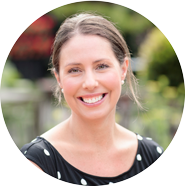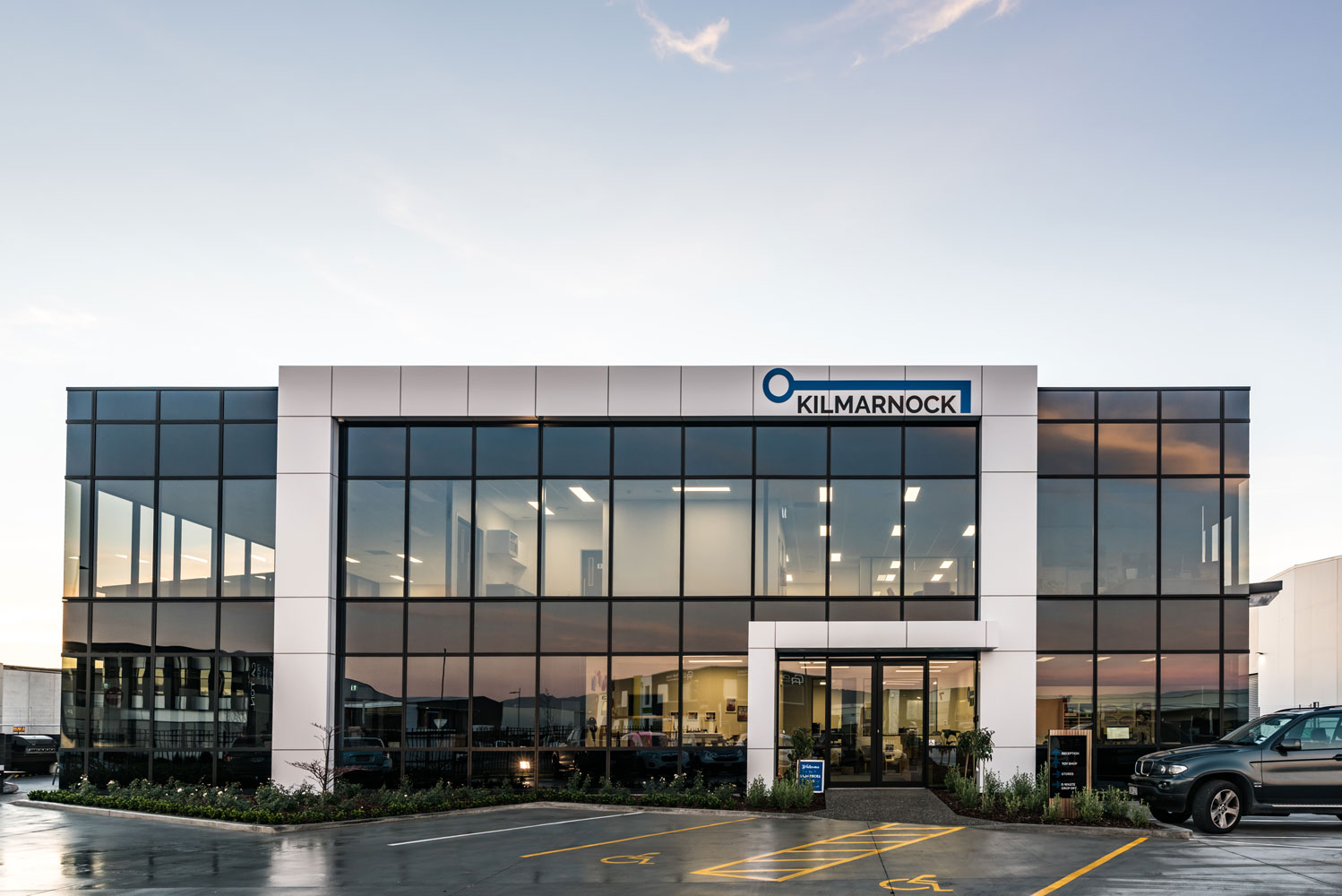Nicola Patrick talks with CEO Michelle Sharp
The following Case Study featuring Michelle Sharp, CEO of Kilamarnock forms one part of Financing the Future, our dynamic content project exploring the market opportunities for impact investment in Aotearoa New Zealand. The project is produced by Pure Advantage and promoted in association with the Impact Investing National Advisory Board Aotearoa New Zealand and the Responsible Investment Association of Australasia. Access the full project here.
Kilmarnock: Empowering people through employment
Changing attitudes through education and employment, and empowering people with disabilities to lead purposeful and dignified lives is Kilmarnock Enterprises’ focus. They provide a supportive paid work environment through a variety of contracts with commercial organisations plus teach adults the skills needed to transition into open employment. Chief Executive Michelle Sharp shares their recent impact investment journey.
What was the original goal of the venture?
Our core purpose hasn’t changed in 60 years – we are about providing a pathway for school leavers with disabilities into a meaningful life through the vehicle of education and employment.
Five years ago, we reinvented ourselves and created a real tangible and exciting venture through the act of working in itself. We shifted our mindset from being a charity to being a business with a heart. We are using the tools of business to lift our social impact.
Through this period we realised we needed to exit our 50-year-old site as it was no longer fit for purpose. Since underpinning our operation with a commercial lens, we have had huge success attracting industrial contracts but our site just didn’t suit that. We quickly realised that given our unusual needs, nothing already existing would work for us. So we designed and commissioned a bespoke NZ$12m Basecamp. It contains four unique businesses in one, with an office block, plus the Academy with a classroom and exercise/wellbeing rooms.
[aesop_image img=”https://pureadvantage.org/wp-content/uploads/2018/11/20170622_Kilmarnock_Highres-14.jpg” panorama=”off” align=”center” lightbox=”on” captionposition=”left” revealfx=”off” overlay_revealfx=”off”]How was the investment structured, who were the investors?
Before I went to the 2016 Social Enterprise World Forum in Hong Kong, I had no idea about impact investment. I knew that our mortgage repayments would be less than rent, plus we would have an asset. So I wanted to find a way to make that happen – it didn’t make sense to be stuck renting when we could afford a mortgage, but it was getting it approved that was the challenge.
Basically we have a concessionary mortgage with the BNZ. Every aspect of the mortgage has been adapted – the interest rate, the terms, and in lieu of full commercial returns, we also report our social impact. They want to see the results that they are helping us achieve through this agreement.
We’re not able to share the details at this time but BNZ is still receiving a return and we’re grateful for their support.
What challenges were faced in securing the deal?
We approached all major NZ banks to seek finance for our build and they all said no. It was really tough – there was an assumption that we must be socially-minded, goody-goody types, with no commercial acumen.
We tried again with the BNZ and got a second meeting. While I suspect the bank originally thought to decline us a second time, albeit politely, we ended up spending five and a half hours together. This meant the bank got to understand what we did and could see that we stood up as a business. In essence, we simply choose to reinvest our profits to create more social impact.
We also had challenges to convince our board and did a huge amount of financial modelling to show that we weren’t taking on too much risk.
Challenges continue now because we need to keep making sure that we are not put back into the business as usual box. Initially, we’ve relied on the strong primary relationships we’ve built, but it can’t rely on individuals – we need to help make this type of investment mainstream. It needs to become integrated with all the bank’s systems.
[aesop_image img=”https://pureadvantage.org/wp-content/uploads/2018/11/IMG_5284.jpg” panorama=”off” align=”center” lightbox=”on” captionposition=”left” revealfx=”off” overlay_revealfx=”off”]How were these challenges overcome?
Success has really been about the power of personal connections with the biggest risk lying in the breakdown of our key relationship, which is held by me. We need a succession plan and to ensure this is never reliant on a single person, no matter the role.
To mitigate that risk, we need to make sure we upskill all employees so our strong business footing is broader. We need to develop that solid foundation. It’s not just investors that need to integrate this different thinking, we need to keep adapting as well.
What would you do differently next time?
Like many, I was scared of failing. In hindsight, I can look back and see that I wasn’t prepared to be vulnerable. Finding the right professional people and partners around you to support facing those challenges is a way to conquer that fear.
In this case, it was a push from the then head of Ākina Foundation (and lead author of this report) Alex Hannant who helped me persist.
After the original wave of funding declines, I had put my head in the sand. I had a business case that I hadn’t shown anyone, but I shared it with Alex while we were at the Social Enterprise World Forum in Hong Kong and that was the turning point. Next time, I would be braver, sooner.
What impact has been achieved?
We have a range of metrics, with the majority covering our social impact, but also a number of environmental measures like reduction of tonnes of waste to landfill and of course standard financial ones.
We have 100 working at Kilmarnock, with about two-thirds of our employees having a disability. Last year we had 10 graduate from our Kilmarnock Academy, with 20 on track for this year, and another 20 next year. The number of our people who have contracts off-site, which is a great stepping stone, varies from month to month, but we have hit a peak of 11 per month in recent times.
Some of our contracted services deliver benefits in themselves too, like our refurbishing products and e-waste recycling.
|
At a glance
|
 When Michelle first joined Kilmarnock in 2010 she did so with great ambitions. To change attitudes towards people with disabilities and create a diverse, and inclusive community that respects the fundamental dignity of each and every one of us and celebrates our individual abilities.
When Michelle first joined Kilmarnock in 2010 she did so with great ambitions. To change attitudes towards people with disabilities and create a diverse, and inclusive community that respects the fundamental dignity of each and every one of us and celebrates our individual abilities.
Prior to joining the disability sector, Michelle spent over one and a half decades working in the Telecommunications sector, gaining a wealth of business experience at both a national and global level. Commencing her career within the Corporate Sector, Michelle’s entrepreneurial hunger gave life to an extremely successful business venture in the early 2000s, which saw the rise of Timico Ltd, one of the fastest growing B2B Telecommunication providers in the UK. In 2009 Michelle and her family, made the decision to leave the UK, in order to pursue a better work life balance, and have been enjoying living in New Zealand ever since.
In early 2013, Michelle was appointed as CEO of Kilmarnock Enterprises, a not-for-profit organisation, who provide a supportive, dynamic and connected environment where adults with intellectual disabilities can realise their individual value as a contributing member of their community.
Driven by business excellence and social change, Michelle embarked on the daunting challenge of transitioning Kilmarnock from a charity based model, to one of New Zealand’s leading social enterprises. Michelle has transformed Kilmarnock’s culture into one that is creative, aspirational, and enthusiastic. She turned the dire financial situation around by diversifying and stabilising contracts and introducing new, previously unimaginable, revenue streams.
Transitioning to a Social Enterprise has enabled the organisation to leverage business excellence to greatly enhance its social value while providing a fun, connected environment where the team is inspired to take command of their future and show the community that we all have strengths, regardless of our disabilities.
Michelle demonstrates enormous passion for the disability sector, craving social change, and understanding that to do so, changing attitudes is paramount. Further to her role as CEO, Michelle has since joined the governing Board of Inclusive New Zealand as Vice President, an umbrella group which promotes social enterprise, innovation and diversity. She is also an Independent Chair at BNZ, Trustee of Akina, Director of Nutrient Rescue, Treasurer at City Harvest, Trustee at St Josephs and an Edmund Hillary Fellow.



Leave a comment